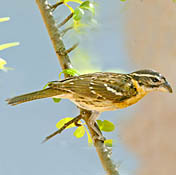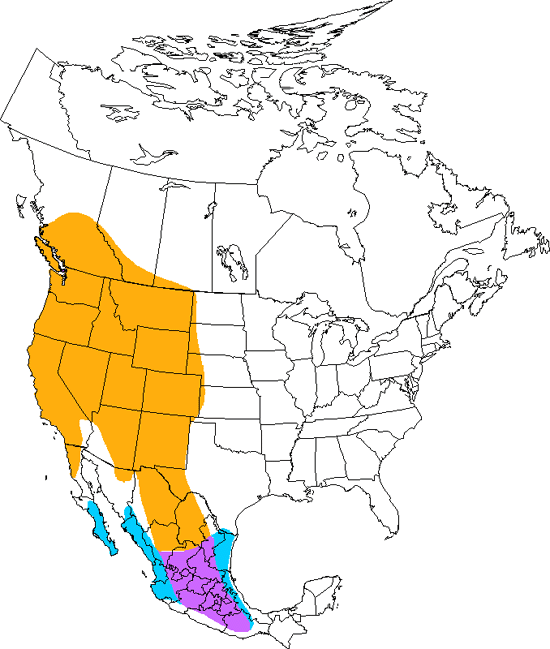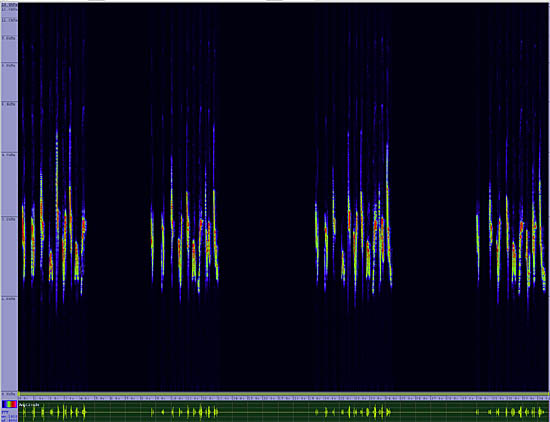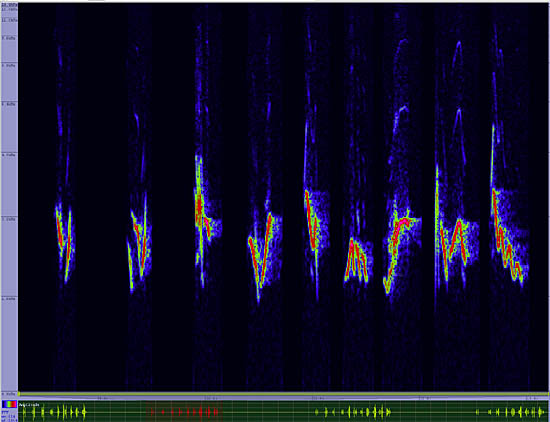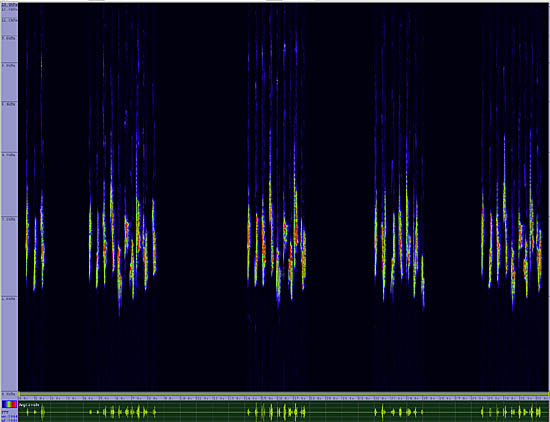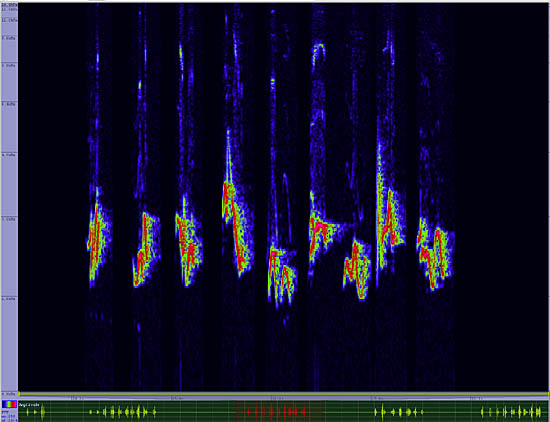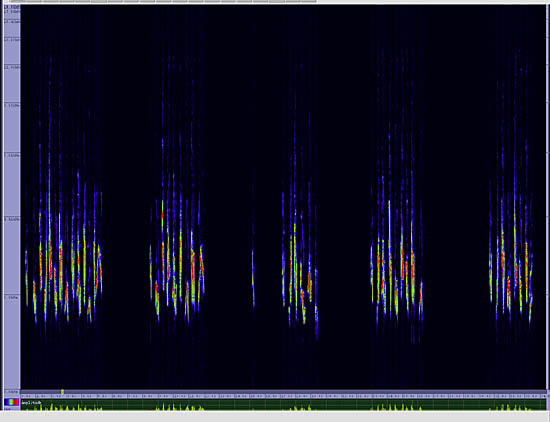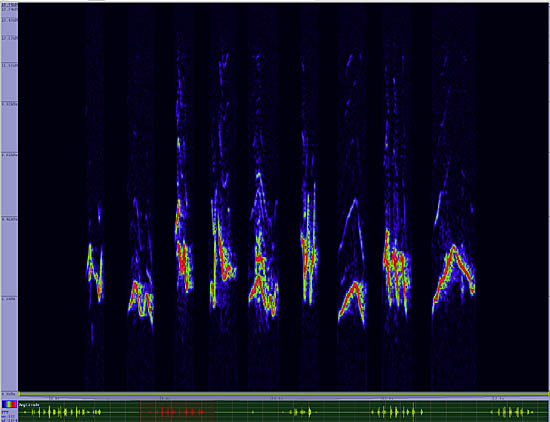
Perching
Black-headed Grosbeak
Pheucticus melanocephalus
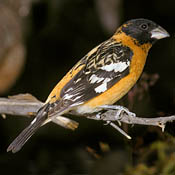
Length: 8 in. (21 cm )
This species nests commonly in riparian forests and low to mid-elevation pine-oak woodlands. Its relatively large nest is made of twigs and rootlets, and usually is placed high off the ground. The Black-headed Grosbeak uses its massive bill to open seeds and nuts, but it also feeds on insects during the summer.
The four-digit banding code is BHGR.
Male | Herbert Clarke
Female | Jim Burns(link is external)
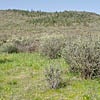
Chaparral
Fir forest
Mesquite bosque
Oak-pine woodland
Riparian / River forest
Savanna

Shrubs

Urban city
View Citation
Be Part of
Ask A Biologist
By volunteering, or simply sending us feedback on the site. Scientists, teachers, writers, illustrators, and translators are all important to the program. If you are interested in helping with the website we have a Volunteers page to get the process started.







